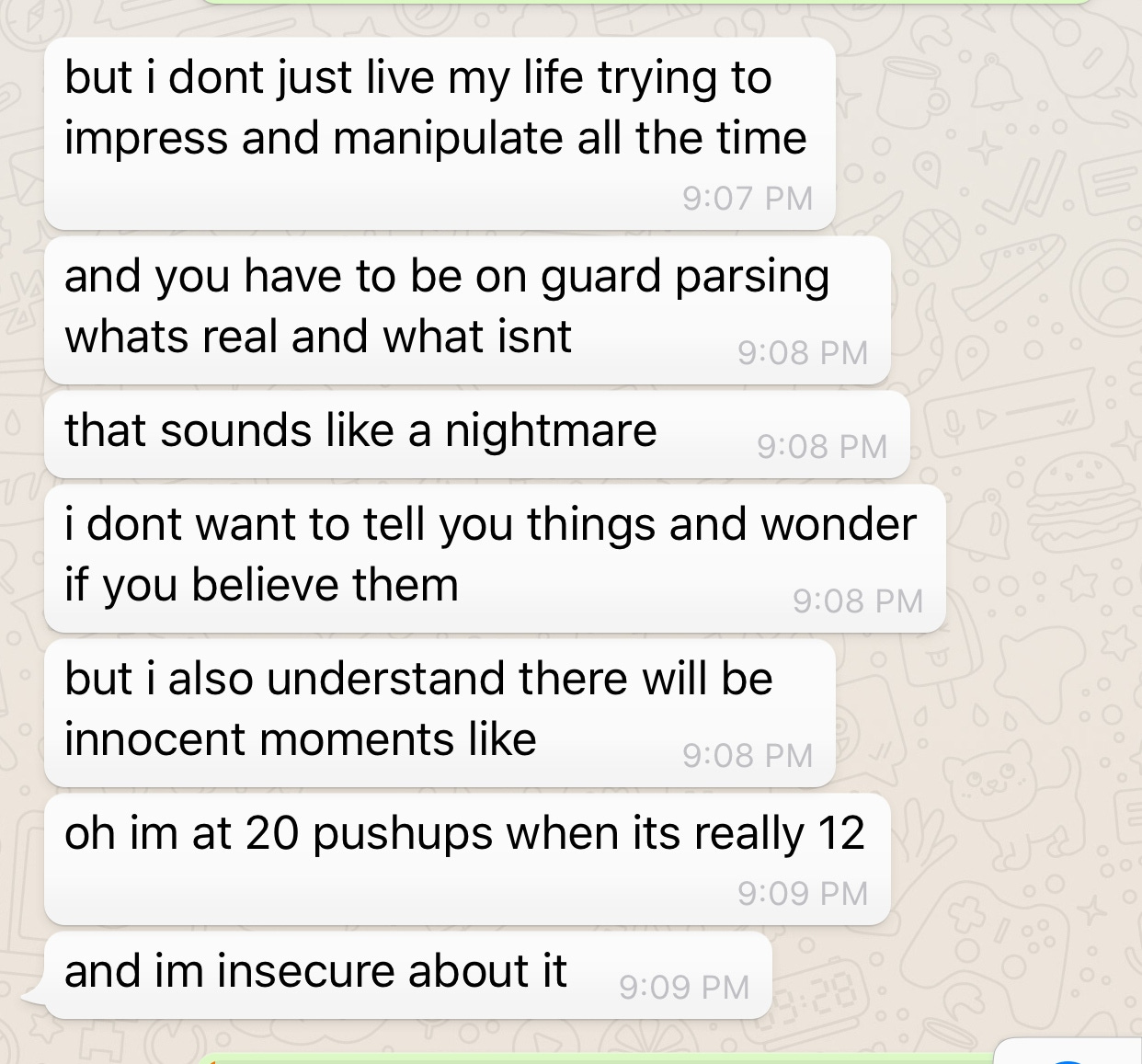Chapter 11, Part 2: Seeds of Discord
The fallout from the Wall Street Journal article about Martin's cellphone extended to our relationship.
As far as federal prisons went, FCI Fort Dix was reasonably pleasant for Martin Shkreli. Sure, it was crowded, dirty, crumbling, unair-conditioned, infested with stray cats, groundhogs and God knows what else, and it sometimes had outbreaks of violence, but once he figured out how to nominally observe the rules, he could more or less do as he pleased (short of having conjugal visits, of course).
He could spend most of his days reading or researching. He could play poker with his bunkmates late into the night or on lazy Sunday afternoons. Thanks to an extensive contraband network, he could easily obtain his favorite junk foods, prescription medications or any other basic creature comforts whenever he wanted them. And when I came to see him, we could hold hands, scoot our plastic chairs close together and get a bit snuggly — none of which was allowed at stricter institutions.
Martin’s halcyon prison days ended for him, though, when a story revealing he had a contraband cell phone — a common enough item in prison, but resulting in severe punishment when one attracted media attention — appeared in the Wall Street Journal in March 2019. Along with causing massive problems for Martin, the article created devastating cracks in our relationship, too. All that was obvious in lengthy conversations we had over said contraband cellphone.
The trouble started brewing after I was interviewed by journalist Rob Copeland, the lead reporter, for the piece as Martin’s friend and “biographer.” Martin’s assumption was that Rob was writing mostly about Vyera, his drug company. He had provided the reporter with dazzling projections about where business was supposedly headed.
When Rob mentioned Martin’s estimates to me, I cringed. Martin compulsively distorted projections and estimates upward. From all the emails I’d seen during his securities fraud trial, I knew that quality had been a factor which helped to get Martin convicted. I worried Rob would cross reference the numbers with other sources, and assume Martin had been lying, when really he was just being irrepressibly optimistic. I reflexively tried to dampen expectations.
“I don’t trust any of Martin’s numbers,” I blurted out over the phone to Rob. “I mean, he’s a very smart person and I trust his calculation methods. But I don’t think he factors in downside risk anywhere near as much as he should.”
My comment didn’t make it into Rob’s article. But when I later explained to Martin what I had told the reporter about his business estimates, he was deeply hurt. We went back and forth for days over WhatsApp as he contemplated what I had said, why I had said it, and what it “meant” about “us.” Even though we did not tell Rob we were “dating,” the article made Martin see a flicker of what the public-facing element of our relationship could become, like a storm cloud darkening in the distance.



